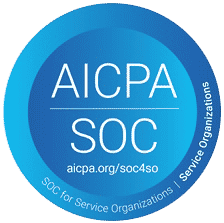Frontline managers are the backbone of any organization, acting as the critical link between upper management and frontline employees. They are responsible for overseeing day-to-day operations, managing teams, and ensuring that company policies and procedures are followed. Their unique position allows them to directly influence the productivity, morale, and overall performance of their teams.
Effective frontline managers can drive significant improvements in customer satisfaction, employee engagement, and operational efficiency. According to the Harvard Business Review, companies with highly effective frontline managers achieve a 48% increase in productivity and a 22% decrease in turnover.
However, the role of a frontline manager is fraught with challenges. They often face high levels of stress due to the constant pressure to meet performance targets while managing diverse teams with varying needs and motivations. Limited authority, inadequate resources, and insufficient training can further complicate their ability to lead effectively. These challenges can lead to high turnover rates, decreased morale, and ultimately, poor business performance.
Given their pivotal role, it is crucial for organizations to invest in strategies that motivate and empower frontline managers. This article aims to provide practical approaches to help organizations support their frontline managers, enhance their leadership capabilities, and ultimately drive better business outcomes.
Understanding the Role of Frontline Managers
Frontline managers are the first level of management within an organization. They are responsible for directly overseeing the day-to-day activities of frontline employees, ensuring that tasks are completed efficiently and effectively. Their key responsibilities include:
- Supervising and coordinating the work of their team members.
- Managing schedules and ensuring adequate staffing.
- Monitoring and reporting on team performance.
- Providing training and development opportunities.
- Handling employee issues and fostering a positive work environment.
- Implementing company policies and procedures.
- Ensuring quality control and compliance with industry standards.
These managers serve as the critical link between upper management and frontline employees. They play a vital role in translating strategic directives from senior leaders into actionable tasks for their teams, effectively bridging the gap between corporate goals and frontline execution. Their position allows them to communicate organizational objectives to frontline workers clearly, ensuring that everyone understands the company’s mission and their role within it.
Furthermore, they provide valuable feedback from frontline employees to upper management, highlighting potential issues and suggesting areas for improvement. This bidirectional flow of information is crucial for implementing changes and initiatives, as it ensures that these are understood and accepted by frontline employees, fostering a sense of alignment and purpose within their teams.
Understanding the pivotal role that frontline managers play across these various industries highlights the importance of strategies to motivate and empower them. By effectively supporting these managers, organizations can enhance operational efficiency, boost employee satisfaction, and ultimately improve overall business performance.
The Importance of Company Culture
Company culture plays a pivotal role in shaping the experiences and effectiveness of frontline managers. It sets the tone for how employees interact, make decisions, and perform their duties. A positive and supportive company culture can significantly enhance the motivation and performance of frontline managers, while a negative or toxic culture can hinder their ability to lead effectively.
Frontline managers are directly influenced by the company culture, as it affects their day-to-day interactions with both upper management and their teams. When a company fosters a culture of respect, collaboration, and recognition, frontline managers are more likely to feel valued and supported in their roles. This, in turn, boosts their motivation and commitment to their work. Conversely, a culture characterized by high stress, lack of support, and poor communication can lead to disengagement, high turnover, and decreased morale among frontline managers.
Motivation is a key driver of performance and morale. Motivated frontline managers are more likely to exhibit higher levels of productivity, enthusiasm, and dedication. They tend to go above and beyond in their roles, inspiring their teams to do the same. Motivation can stem from various factors, including recognition for hard work, opportunities for career advancement, and a sense of belonging within the organization. When frontline managers feel motivated, they are more likely to foster a positive work environment for their teams, leading to improved overall performance.
The benefits of empowered managers extend beyond individual performance. When frontline managers are empowered, they create a ripple effect throughout the organization. Today, employee engagement is more critical than ever, with 85% of employees self-reporting not being engaged at work. Empowered managers play a crucial role in reversing this trend by fostering environments where employees feel valued, motivated, and connected to their work.
This heightened engagement translates into improved team cohesion, higher job satisfaction, and ultimately, better performance outcomes. Additionally, empowered managers are better equipped to develop and retain talent within their teams, effectively reducing turnover rates and mitigating the costs associated with hiring and training new employees.

Strategies to Motivate Frontline Managers
Motivating frontline managers is essential for fostering a productive and engaged workforce. Implementing effective strategies not only boosts morale but also enhances leadership capabilities and overall team performance.
Recognition and Reward Programs
Rewards play a significant role in activating the brain’s reward system, which is crucial for driving performance. When managers receive recognition or rewards for their hard work and achievements, it triggers the release of dopamine in the brain, leading to feelings of pleasure and satisfaction. This biological response reinforces the behavior that led to the reward, motivating managers to continue performing at a high level.
Implementing effective recognition systems requires leveraging data-driven insights to ensure fairness and effectiveness. By analyzing performance metrics, feedback from peers and supervisors, and qualitative assessments, organizations can identify and reward specific behaviors and outcomes that align with company goals. This approach not only enhances the credibility and impact of recognition efforts but also fosters a culture of performance excellence and continuous improvement.
By integrating robust recognition and reward programs supported by data-driven insights, organizations can effectively motivate frontline managers, boost morale, and drive sustainable performance improvements across the board.
Career Development Opportunities
Offering comprehensive training programs equips frontline managers with the necessary skills and knowledge to excel in their roles. Mentorship programs provide valuable guidance and support from experienced leaders, helping managers navigate challenges and develop professionally. Clear career pathways outline advancement opportunities within the organization, giving managers a sense of direction and purpose in their careers.
Professional development plays a pivotal role in sustaining motivation and engagement among frontline managers. According to a survey, 74% of employees say that a lack of professional development opportunities is preventing them from reaching their full potential. By investing in ongoing learning opportunities, organizations demonstrate their commitment to managers’ growth and success. Continuous development not only enhances managers’ capabilities but also prepares them for future leadership roles, contributing to succession planning and organizational stability.
By prioritizing career development opportunities, organizations can empower frontline managers to reach their full potential, drive innovation, and achieve long-term success. These initiatives not only benefit individual managers but also contribute to a resilient and dynamic organizational culture focused on continuous improvement.
Employee Feedback
Regular feedback sessions provide frontline managers with valuable insights into the challenges their teams face with scheduling. This feedback helps identify recurring issues such as workload distribution, shift timing, and resource allocation, which can significantly impact operational efficiency and employee satisfaction. Understanding these challenges allows managers to proactively address them, leading to smoother operations and improved team morale.
Equally important is gathering feedback on scheduling preferences from employees. This input is essential for creating a work environment that respects and accommodates individual needs, including work-life balance and personal commitments. By regularly seeking employee perspectives on scheduling, managers can adjust schedules to better meet these preferences, thereby enhancing employee satisfaction and engagement.
Implementing robust feedback mechanisms not only empowers frontline managers but also strengthens organizational agility. By consistently gathering and acting on employee feedback regarding scheduling challenges and preferences, organizations foster a culture of responsiveness and support. This approach promotes teamwork, boosts morale, and ultimately contributes to higher levels of productivity and satisfaction among frontline staff.
Flexible Scheduling
Utilizing advanced scheduling software, such as the Indeavor Engage App, streamlines the process of shift swapping among employees. This technology enables frontline managers to respond swiftly to schedule change requests while ensuring adequate coverage. Easy shift swaps contribute to employee satisfaction by providing flexibility and promoting a collaborative work environment.
Offering employees the opportunity to volunteer for overtime helps frontline managers manage fluctuating workloads effectively. This approach allows managers to prioritize employee preferences and skills when allocating overtime, fostering a sense of fairness and engagement among team members.
Implementing flexible scheduling practices supported by technology not only enhances operational efficiency but also demonstrates organizational responsiveness to employee needs. By leveraging tools like Indeavor’s App, frontline managers can optimize scheduling processes, improve workforce satisfaction, and ultimately drive better business outcomes.
Transparency
Fairness in shift allocation involves equitable distribution of shifts based on objective criteria, such as workload, skill level, and employee preferences. By implementing transparent processes, organizations can mitigate perceptions of favoritism and ensure that scheduling decisions are perceived as fair and impartial. This approach builds trust among team members and fosters a positive work environment.
Offering schedules well in advance allows frontline managers and their teams to plan effectively and reduce the stress associated with last-minute changes. Providing advance notice enables employees to balance work commitments with personal obligations, enhancing overall job satisfaction and work-life balance.
Ensuring transparency in shift allocation and providing schedules proactively not only improves organizational efficiency but also contributes to a supportive workplace culture. By prioritizing fairness and advancing communication, organizations empower frontline managers to lead confidently and foster a productive team environment.

Measuring Success and Continuous Improvement
Establishing clear metrics allows organizations to quantitatively assess the impact of motivation and empowerment initiatives on frontline manager performance and team outcomes. Key metrics may include employee engagement scores, productivity metrics, turnover rates, and feedback from performance reviews. By tracking these metrics over time, organizations can gauge the success of their strategies and identify areas for improvement.
Regular feedback from frontline managers is invaluable for refining motivation and empowerment approaches. Managers’ insights provide firsthand perspectives on the effectiveness of implemented strategies, highlighting strengths and areas needing adjustment. Engaging frontline managers in the feedback process fosters a collaborative approach to continuous improvement and ensures that strategies remain aligned with evolving organizational needs.
Adaptability is key to maintaining relevance and effectiveness in motivation and empowerment strategies. Markets, technologies, and workforce dynamics evolve, requiring organizations to adapt strategies to meet changing circumstances. Embracing a culture of continuous improvement allows organizations to stay agile and responsive, continuously refining approaches based on feedback and emerging best practices.
By implementing robust measurement frameworks, gathering actionable feedback, and embracing adaptability, organizations can foster a culture of continuous improvement in motivating and empowering frontline managers. This proactive approach not only enhances managerial effectiveness but also drives overall organizational success and sustainability.
Indeavor’s Commitment to Transforming Workforce Management
Empowering and motivating frontline managers is not just beneficial but essential for organizational success in today’s dynamic business landscape. Empowered frontline managers contribute significantly to organizational success by fostering high levels of employee engagement, improving productivity, and driving operational efficiency. Studies show that organizations with motivated frontline managers experience lower turnover rates, higher customer satisfaction, and better overall financial performance.
We urge organizations to invest in their frontline managers, recognizing them as critical assets who bridge the gap between leadership and frontline operations. By prioritizing their development and providing the necessary support and resources, organizations can create a resilient and motivated workforce poised for long-term success.
Here at Indeavor, we are committed to transforming workforce management for organizations across various industries. Our mission is to empower frontline managers with innovative tools and solutions that streamline scheduling, enhance communication, and optimize workforce performance.
To learn more about how Indeavor can help your organization empower frontline managers and improve operational efficiency, contact us for a demo today.







